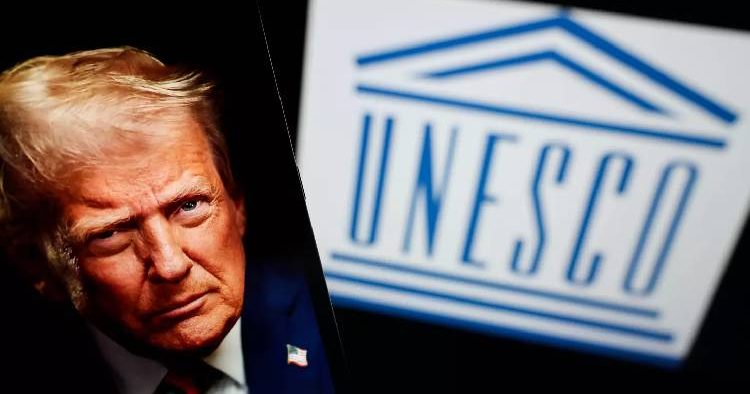In a familiar turn, the U.S. government has announced its withdrawal from UNESCO—the United Nations Educational, Scientific and Cultural Organization—effective December 31, 2026. The move comes just two years after rejoining under the Biden administration, following a controversial exit in 2018.
Advertisements

The White House, echoing Trump’s America First stance, stated that UNESCO now aligns with “woke, divisive cultural and social causes,” falls prey to anti-Israel sentiment, and overemphasizes Sustainable Development Goals that clash with national interests. State Department spokesperson Tammy Bruce cited UNESCO’s 2011 decision to admit Palestine as highly problematic.
The decision marks the third U.S. withdrawal from the Paris-based agency: first under President Reagan in 1984, again under Trump in 2017, after which the country rejoined in 2003 under President George W. Bush. UNESCO Director-General Audrey Azoulay expressed deep regret, noting that despite the shift, UNESCO’s funding is more stable, with U.S. contributions down to 8% of its total budget and a diversified funding base.
Critics warn this withdrawal may hamper U.S. ability to shape global cultural policy. UNESCO oversees programs such as World Heritage Sites, Holocaust education, UNESCO Chairs, AI ethics, and science cooperation—fields where American leadership has been significant. Some also argue the exit potentially cedes influence to rivals like China.
On the upside, the withdrawal won’t strip UNESCO designations already held by U.S. sites, such as the 26 World Heritage locations including the Statue of Liberty and the Grand Canyon.
The U.S. flag will still fly at UNESCO headquarters until December 2026, marking a pause yet again in a long, cyclical relationship characterized by ongoing debate over international cooperation versus national sovereignty.

